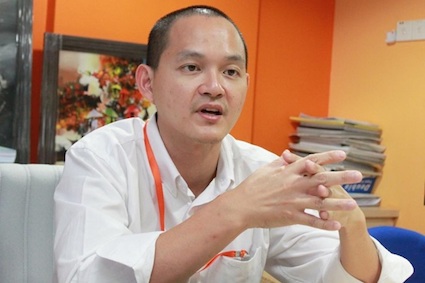Pakatan campaign mistakes caused Sungai Bakap loss, says Kian Ming

Ex-deputy minister Ong Kian Ming says the increase in support for Perikatan Nasional in the Sungai Bakap by-election is driven by a small increase in its overall support and a significant decline in non-Malay voter turnout.
(TMI) – THE increase in support for Perikatan Nasional (PN) in the Sungai Bakap by-election was driven by a small increase in its overall support and a significant decline in non-Malay voter turnout, said Ong Kian Ming, an ex-deputy minister.
He said the numerous missteps in Pakatan Harapan’s (PH) campaign exacerbated the already challenging political and economic landscape for the unity government at the national level.
“If the key parties within the Madani government do not heed these warning signals, these trends will likely worsen, and the point of no return may be crossed well before the next general election.
“One of the key highlights from this by-election is the much larger drop in the non-Malay turnout compared to the Malay turnout,” he said.
He said the estimated Malay and non-Malay turnout in 2023 were 78% and 73% respectively while the estimated Malay and non-Malay turnout in 2024 were 76% and 46% respectively.
“This shows that the estimated Malay turnout fell by 2% while the non-Malay turnout fell by a massive 27% from 2023 to 2024.
“With this differential in turnout among Malay and non-Malay voters, the Sungai Bakap seat effectively went from being a 60% Malay/40% non-Malay seat to a 70% Malay/30% non-Malay seat,” he said in a statement.
Ong said the shifts in Malay and non-Malay support for PH were more balanced among the voters who turned out to vote.
“PH suffered a double whammy in that not only did it lose some Malay and non-Malay support from 2023 to 2024 but there was also a significant drop in the non-Malay turnout, the overwhelming majority of whom supported PH in 2023 and previous elections,” he said.
The former deputy minister said it was always going to be an uphill task for PH to win back this seat from PN due to numerous reasons.
These include the challenge to counter the narrative of rising costs of living in the post-Covid landscape under the unity government and poor communication of the unity government’s policy directions.
“There are also more issues for the opposition to attack the government on compared to the positive outcomes which the government can claim credit for,” he said.
Ong said the battle was made harder during the campaign because of the inability of the government to effectively explain the reasons for the introduction of the targeted diesel subsidy and the incessant politicisation by the opposition of the MAHB privatisation exercise.
“There was also the unfortunate use of derogatory remarks by PKR elections campaign director, Rafizi Ramli, against the opposition and the unnecessary playing up of the differences in academic qualifications of the PH versus PN candidate,” he added.
Ong said the dramatic fall in non-Malay turnout reflected the growing disappointment of Chinese and Indians towards the unity government over unfulfilled promises and poor performance amid an uncertain economic landscape.
The poor handling of the Dual Language Program and matriculation-related issues also likely caused unhappiness, he said.
Ong said the lower turnout was a protest by the non-Malays and the slight shift in the non-Malay vote towards PN should be a warning sign to PH and Umno.
“If this trend continues and if it cannot be reversed before GE16, a sizable number of marginal seats won by PH in GE15 and some of the seats which Umno are hoping to hold on to via an electoral pact with PH, may be lost to PN,” he added.

